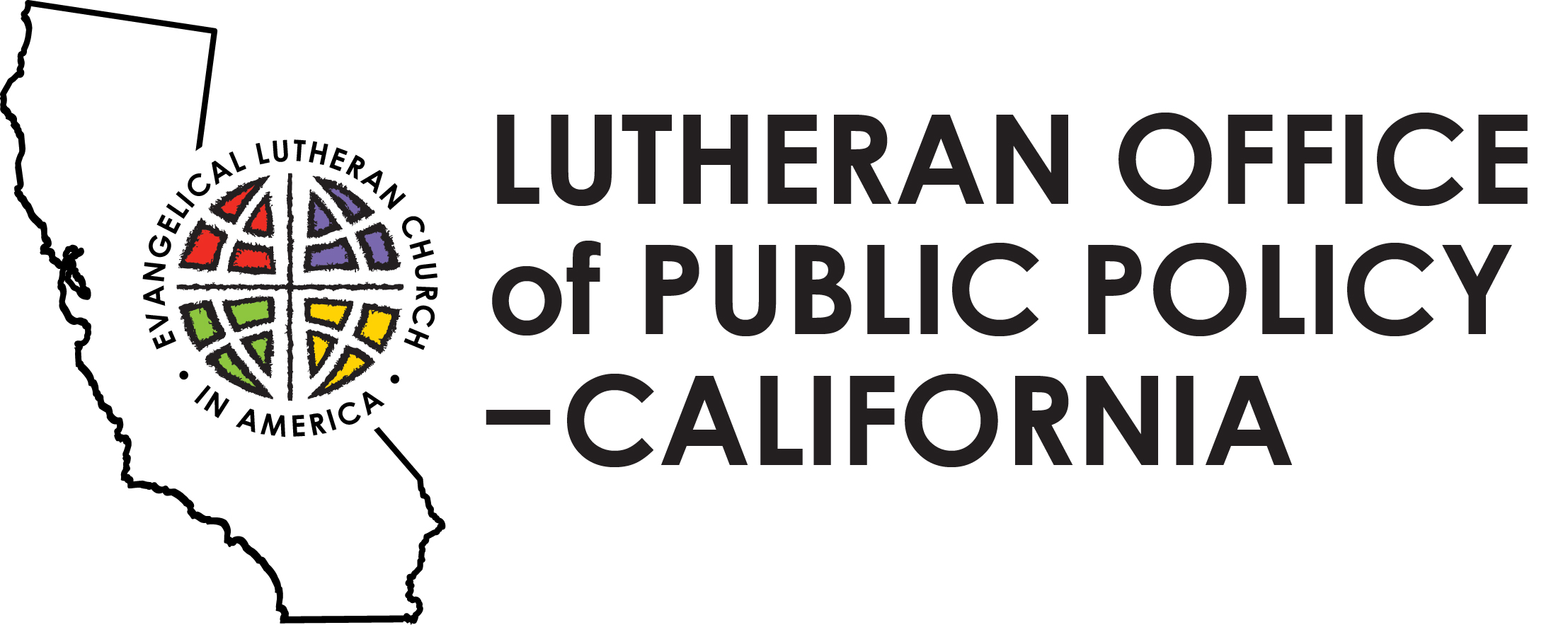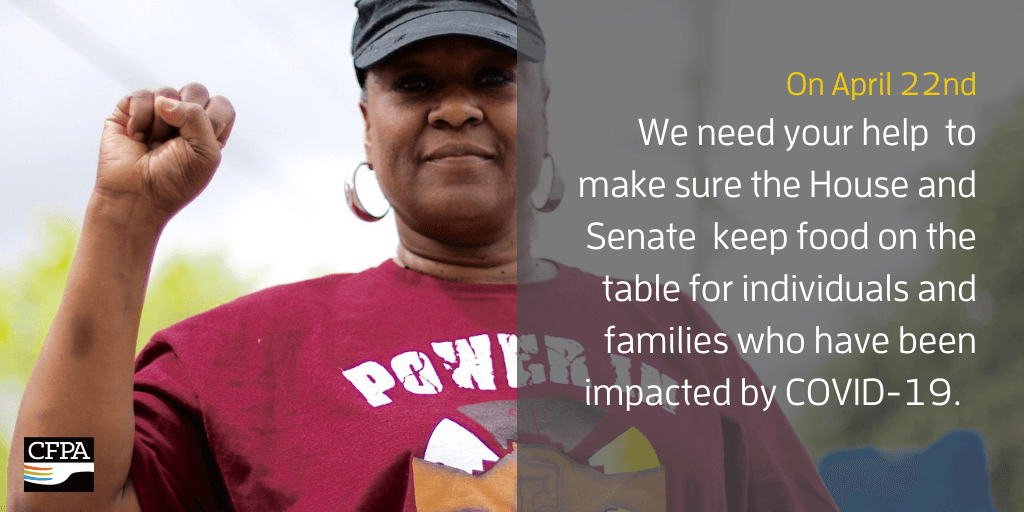Progressive Organizations Outline Sweeping Agenda to
Achieve a “Recovery for All” in California that is Equitable and Green
Press Release
May 6, 2020
Contact: Nikki Paschal, 916.444.7170

Sacramento, CA – The Building the California Dream Alliance, a broad coalition of more than 55 progressive organizations, today unveiled a sweeping set of policy proposals aimed at eliminating injustices in health care, economic opportunity, education and environmental quality that have been exposed and amplified by the COVID-19 pandemic.
In a letter to Governor Newsom, the organizations’ leaders emphasized the opportunity before California now to re-shape a broken economic system that left millions of Californians and their families unable to withstand any level of economic downturn, and to make a sizeable investment in safety net programs needed to ensure a Recovery for All. They also underscored the unacceptable structural racism in our health care system and in the determinants of health – reinforced by economic and environmental injustice – that have resulted in COVID-19’s staggering death toll for people of color.
“This pandemic is a clarion call for transformation across our economic and social systems,” said Regina Banks, Director, Lutheran Office of Public Policy – California. “Within the first few weeks of California’s effort to slow the virus’ spread, millions of Californians were unable to pay for rent or food – illustrating just how many Californians were living on razor thin margins even in a ‘growing’ economy. While we give attention to their most immediate needs, California must commit to support their recovery over the long haul and implement the sweeping reforms needed to deliver justice in economic opportunity, education, health care, and the environment.”
Each year the coalition outlines an ambitious agenda to uplift families, empower workers and communities, and expand opportunities for all Californians to take part in the California Dream. This year’s coalition agenda was released today as state legislators have begun to hold policy hearings on bills and the week before Governor Newsom is set to release a May budget revision transformed significantly by the COVID-19 pandemic.
“The disproportionate loss of life in California’s communities of color is devastating and unacceptable — and it was preventable,” said Nourbese Flint, Executive Director of the Black Women for Wellness Action Project. “Systemic racism has persisted in health care access and delivery because we have failed to prioritize eliminating it. We will not allow inequities to be forgotten when the immediate threat of COVID-19 is behind us, and we will not relent from our fight for health care equity until every Californian has the opportunity to be healthy.”
“Too many workers whom we recognize now as essential have always been treated as if they are expendable,” said Amber Baur, Executive Director UFCW Western States Council. “Now is the time for us to start treating every single Californian as essential, valuable, and worthy of dignity and a voice both at work and in their communities.”
Healthcare and Housing for all people, with no exceptions.
Health Care: Expand Medi-Cal for all eligible seniors, regardless of immigration status.
Health Care: Increase state subsidies for Covered California.
Health Care: Enact AB 1611(Chiu) which would ban surprise emergency room billing by preventing surprise bills for out-of-network hospital ER visits so consumers are only billed for their in-network co-pay or deductible, and setting a fair provider payment standard.
Healthcare: Clarify that reproductive and sexual health services including abortion, gender-affirming care, sexually transmitted infection testing and treatment, and family planning are essential healthcare that cannot be delayed. In addition, remove cost-sharing for these essential services.
Healthcare: Remove physician supervision for certified nurse midwives to increase access to high-quality, high-value maternity care, reduce race-based disparities in maternal outcomes, and bring California in line with the 46 other states that all do not require physician supervision for certified nurse midwives.
Housing: Forgive unpaid rent accrued by low income households during the crisis. Establish a relief fund for nonprofit housing developers and needy landlords who’s lost rental incomes would otherwise put their business at risk. Eligible landlords shall meet a set of tenant protection criteria. State government should recoup these funds with a temporary or permanent fee on the largest landlords.
Unhoused: Set aside 20% of the total 2020-21 homelessness budget to combat youth homelessness.
Housing: Dedicate significant funding and deploy a set of strategies to reign in speculation in the housing market.
Housing: End predatory displacement financing by requiring state chartered banks and state licensed lenders to develop an anti-displacement financing policy.
A government focused on care and inclusion that lifts all people out of poverty allowing us to live full and happy lives.
Immigration: Direct local jails and prisons to suspend the transfer of individuals from California’s custody to ICE in order to protect Californians from being subjected to inhumane and unsanitary conditions in immigration detention where the COVID-19 virus has been rapidly spreading.
Immigration: Expand EITC for ITIN workers and allow it to go into effect retroactively.
Expand Aid Programs: Implement a public education program to get people to file federal tax returns so that they can receive the $1,200 federal stimulus checks.
Nonprofits: Direct departments to continue paying contractors who are underperforming due to temporary closures and suspension or reduction of services associated with COVID-19 and provide expedited or automatic approval process for budget modifications that do not increase the contract.
Small business: Invest in a $100 million grant program for small businesses with 1-25 employees and under $1 million in revenue disseminated by CDFIs and economic development community based organizations to ensure that hard to reach and historically marginalized small businesses and sole proprietors benefit from the program.
SEED Initiative: Maintain the $10 million SEED Initiative currently in the proposed budget.
Policies and Programs that prioritize workers and communities over corporate executives.
Worker Protections: Ensure that workers receive the benefits they deserve by mandating a presumption that contracting COVID-19 or exposure to and physician ordered quarantine due to COVID-19 is conclusively determined to arise out of and in the course of employment for all essential workers.
Worker protections: Require California and its healthcare system to have a long term plan for ensuring we have an adequate supply of PPE.
Worker Protections: Expand California leave laws to ensure coverage for all workers not covered by the federal Families First Coronavirus Response Act including amending the California Family Rights Act to ensure that workers can take time off to care for themselves or their loved ones without losing their jobs.
Worker Protections: Create an “Emergency Fund” for workers that cannot access unemployment insurance and other safety because they are excluded by law such as garment workers, childcare workers and undocumented workers
Worker Protections: Enact, SB 1257 (Durazo) which would eliminate the “household domestic service” exclusion in Cal/OSHA, which sets standards for employers to provide a safe working environment for workers.
Worker Protections: Enact SB 1399 (Durazo) which would put a stop to the most egregious exploitation of garment workers by ensuring that they are fairly compensated for their work and keep the wages they earn.
Payday Lenders: Issue comprehensive guidance to keep payday lenders and Merchant Cash Advance shops from increasing interest rates.
Childcare: Invest $200 million from the CARES Act into the creation of a child care fund to support essential workers child care needs. This investment would fund approximately 80,000 childcare slots.
Safety Net for All: Create a temporary, partial income replacement program for excluded workers who are not eligible for the state or federal benefits administered by EDD and who are unemployed or underemployed as a direct result of the COVID-19 pandemic.
A just transition to a green, regenerative economy that ensures all Californians have a clean and safe environment where they live, work, play and pray.
Utilities & Water Service: Prohibit utility shutoffs and restore service for any essential service, including but not limited to: broadband, mobile phones, electricity, natural gas, water for those with combined water/sewer utility. In addition, waive all liens, late fees, and penalties on such utilities. This includes implementation of EO N-42-20, immediately ending all disconnections of water service for nonpayment, and restoring service to all those who had water service disconnected since March 4, 2020.
Environment: Implement health-protective regulations that impact clean air, clean water, and environmental health must not be delayed or rolled back, especially not during a health crisis.
Environment: Retain the use of Greenhouse Gas Reduction Funds for incentives that reduce greenhouse gases and localized air pollution from vehicles.
Environment: Develop an economic stimulus package that aligns spending with good job creation with benefits to public health, the environment, and climate resiliency. Any such plan must be informed by impacted communities.
Environment: Enact AB 345 (Muratsuchi) to ensure that CalGEM finishes the public health and safety rulemaking currently underway, provides resources for impacted communities to participate, and establishes a health and safety buffer zone between oil extraction and communities. As the link between exposure to air pollution and susceptibility to COVID-19 has emerged, CalGEM has the responsibility to establish a setback and any other measures that will help improve public health coming out of this crisis.
Expand and Protect our democratic process, ensuring robust, accessible opportunities for all Californians to determine the future of our government and economy.
Voting: Mail every voter a ballot, require robust in-person voting options and early voting, ensure additional resources for a massive public education and outreach campaign so every voter understands their options to vote safely, and provide poll workers with protective gear and “hazard pay”.
Public Access: Continue to ensure that the public, and especially those most impacted by decisions, both locally and state-wide, can participate remotely in decision making.
###
The Building the California Dream Alliance includes: ACCE, Advancement Project, American Civil Liberties Union of CA, Asian Americans Advancing Justice, Asian Pacific Environmental Network (APEN), Black Women for Wellness, Breast Cancer Prevention Partners, California Attorneys For Criminal Justice (CACJ), California Calls, California Donor Table, California Low Income Consumers Coalition, California Domestic Workers Coalition, California Employment Lawyers Association (CELA), California Environmental Justice Alliance, California Food & Farming Network, California Labor Federation, California Immigrant Policy Center, California League of Conservation Voters, California NOW, California Pan-Ethnic Health Network, California Reinvestment Coalition, Center for Responsible Lending, Child Care Law Center, Coalition for Humane Immigrant Rights (CHIRLA), Consumer Attorneys of California, Council on American-Islamic Relations, California Chapter (CAIR-CA), Courage California, Disability Rights California, Drug Policy Alliance, Earthjustice, Ella Baker Center for Human Rights, Environment California, Equality California, Equal Rights Advocates, Friends Committee on Legislation of California, Health Access, Latino Coalition For A Healthy California, Lutheran office of Public Policy, MALDEF, Mobilize the Immigrant Vote, Mujeres Unidas, NARAL Pro-Choice California, NextGen California, PICO California, Planned Parenthood Affiliates of CA, PolicyLink, Public Advocates, SEIU California, Sierra Club California, Smart Justice California, UFCW, Voices for Progress, Young Invincibles, Western Center on Law & Poverty









